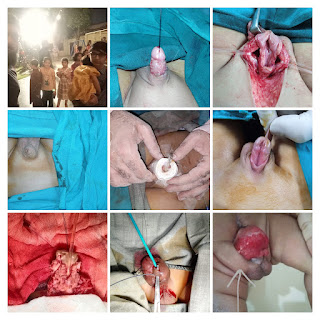Shirts Off, Walls Down: When Admiration Becomes Abuse
By: Dr. Naseem Javed, Adult and Pediatric Urologist
In my clinical practice as a urologist, I often see patients—especially men—seeking help for issues like erectile dysfunction and premature ejaculation. But during these consultations, especially with younger men who have seen my bold photos online, many open up about much deeper and often hidden struggles. They share heartbreaking stories of childhood abuse, fear of intimacy, and confusion about relationships. Many are hesitant to get married, even though their families are pressuring them.
What strikes me most is not only their pain but also the silence they’ve carried for years. When they find a doctor who understands and doesn’t judge—someone they feel comfortable with—they finally speak.
This post is not about shaming anyone. It’s about understanding a complex dynamic that plays out in many lives, especially in cultures where masculinity is measured in dominance and emotional needs are left unspoken.
The Hidden Hunger: Why Do Masculine Men Seek Validation from Vulnerable Boys?
This behavior is not always about sexual orientation. In fact, it often stems from something deeper: a hunger for power and ego-boosting admiration.
Many adult men raised in patriarchal cultures are taught to tie their value to how admired or feared they are—not to emotional maturity or empathy. When they do not receive this admiration from their wives or girlfriends (who may have grown emotionally independent or disillusioned), they often seek attention elsewhere.
They turn to younger or more submissive boys—not out of romantic desire, but because these boys:
- Seem impressed by their physical strength.
- Are emotionally dependent and less likely to challenge them.
- Reflect the admiration and submission that feeds their fragile sense of masculinity.
These men crave not connection—but dominance.
Power Over Connection: A Dangerous Confusion
In healthy relationships, connection is built on respect, emotional intimacy, and equality. But in abusive cases like these, the abuser doesn’t want to be challenged, questioned, or seen for who they truly are. They want to be worshipped, feared, and followed.
That’s why they often choose young boys who lack social confidence or emotional support. They become the “protector,” the “hero,” and then use that position to control and exploit.
Repeating the Trauma: From Victim to Aggressor
Many of these abusers were themselves once vulnerable. They may have been neglected, shamed, or even abused. Rather than healing, they grow up with unresolved anger and fear. When given the chance to be in control, they reverse roles—becoming the one who dominates.
They target people who remind them of their former self—the shy, admiring, powerless boy. It’s not love. It’s a reenactment of pain, now played out with them as the powerful one.
Attraction Isn’t Consent
As a urologist who often provides sexual counseling, I meet patients who feel guilty or confused for having once admired or felt attracted to their abuser. I tell them clearly:
“Attraction is not wrong. It does not give anyone the right to hurt you. You deserved respect—then, and now.”
These feelings are often part of the trauma. Survivors didn’t ask to be used. They simply wanted affection, mentorship, or safety.
A Message to Survivors
If you were ever in a situation where someone used your admiration or vulnerability against you, know this:
- You are not weak.
- You are not responsible for their abuse.
- You have the right to take your story back.
Whether it’s by speaking out, seeking therapy, or reclaiming your body and confidence—you are allowed to heal. And you are never alone.
About My Clinical Approach
My name is Dr. Naseem Javed. I am an adult and pediatric urologist. I completed my MBBS in 2005 from Punjab Medical College. After completing my post-graduation in adult urology FCPS, I pursued a second fellowship in super speciality of pediatric urology. Currently, I practice at Ammar Medical Complex Jail Road Lahore and at Farooq Hospital Avenue Mall DHA Lahore, also serve as an Assistant Professor at the University of Child Health Sciences, Children’s Hospital Lahore.
In my practice, I often work with men dealing with sexual health concerns. But my clinic has also become a safe space for many who carry deeper emotional wounds. When young men open up about their past, I don’t just treat their symptoms—I listen, validate, and where needed, support them in counseling both for themselves and with their families.
Many young people have shared with me that they feel pressure to marry before they are emotionally ready. Some carry unresolved trauma from childhood abuse, and they fear marriage will only deepen their emotional struggles. In these cases, I also help their parents understand that healing takes time—and that forcing marriage too early can do more harm than good.
My goal is to create a space where patients feel safe, respected, and supported—not just physically, but emotionally as well.
If you have lived through these struggles—your story matters. And healing is possible.
For consultations or referrals, feel free to reach out. Together, we can work toward dignity, confidence, and emotional freedom.
You are not what happened to you. You are who you choose to become.
میں آپ کے جذبات کی قدر کرتا ہوں اور آپ کی بات کا احترام کرتا ہوں۔






Comments
Post a Comment